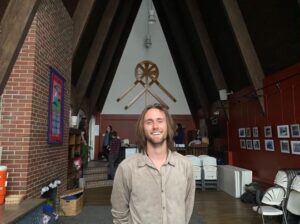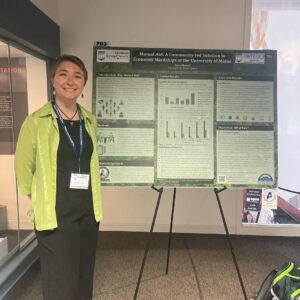Maine is known for its quiet, slow-paced allure, particularly felt within the tight-knit communities it fosters. The University of Maine prioritizes safe atmospheres and a general sense of community. Yet, that feeling of connection has been largely reserved for white students. In 2020, Maine was ranked as the least diverse state in the US.
That said, the voices speaking for UMaine students have represented a singular interest for some time. While clubs such as the African Student Association, the Latin American Student Organization, the Asian Student Association and many others attempt to gain visibility in student government and administration, they often feel lost in the dominant conversations. However, last semester, a new precedent was reshaped.
“That was the main emphasis for doing this all; trying to resurrect the Student Heritage Alliance Council, also known as SHAC, because it was a big integral part of bringing multicultural awareness, enrichment and education on campus,” Jon Guzman, a third-year Maine Business student, said. “And for organizations who do represent the multicultural constituency to be able to represent themselves as one group doing the same effort and the same cause and be able to host events that encompass all of those groups combined.”
Guzman, president of the Student Heritage Alliance Council (SHAC), was reinstated on campus after a long hiatus from COVID-19.
Guzman has taken on various roles at the university: a student lead at the Office for Diversity and Inclusion, a peer learning assistant, a Maine Business School ambassador, the student mental health chair — the list goes on.
The revival of SHAC paves the way for various groups to share their previously silenced voices. Since this organization’s hiatus, the minorities of UMaine have had difficulty getting through to policies and legislation within the university. Without a central voice, multicultural organizations would reach out individually to UMSG and get little to nothing back.
“All of the different groups had a really big disconnect with the student government, the administrators and within themselves. I knew that SHAC would be that place where everyone would come together and understand the policies and the legislature that UMSG runs,” said Guzman.
Beyond administrative level help, Guzman heads events to bring awareness, education, and togetherness to the students on campus. Last semester, to kick off “SHAC is Back!” Guzman hosted a “Friends and Family Feast” under SHAC and the Office of Diversity and Inclusion. This event brought out over 400 attendees, serving courses from six different cultures and giving way to more inclusion, enriching UMaine. At that time, SHAC had six multicultural organizations under its wing: Hillel, the Black Student Union, the Caribbean and Latinx Student Alliance, the Asian Student Association, the Spanish Club and the Japanese Club. As of today, SHAC has an advisory board of 11.
Guzman, the individual who set this into motion, has been a long-time advocate of BIPOC students. His fight for this inclusion is not over after the readmission of the Student Heritage Alliance Council.
Starting off the semester with a first SHAC meeting on Jan. 31, Guzman started working on two major projects: the revising of the constitution (to ensure SHAC never goes into as drastic a hiatus again) and the follow-up to the Friends and Family Feast: a big collaborative event in April 2024.
As Guzman continues to work to make UMaine a more inclusive, constructive environment, the student body is challenged with a unique opportunity to show up for our peers, ensuring a safe and diverse voice for every student.










